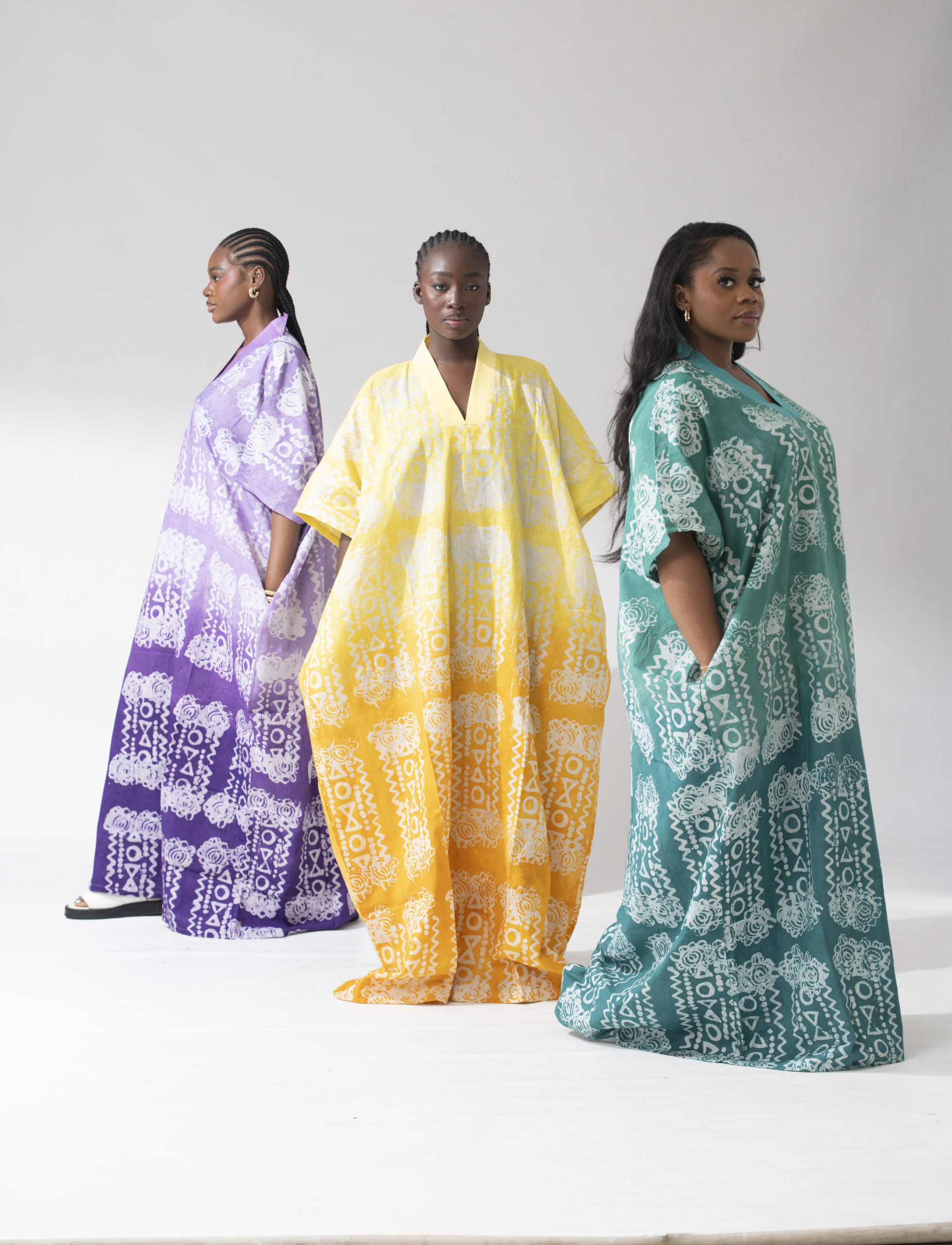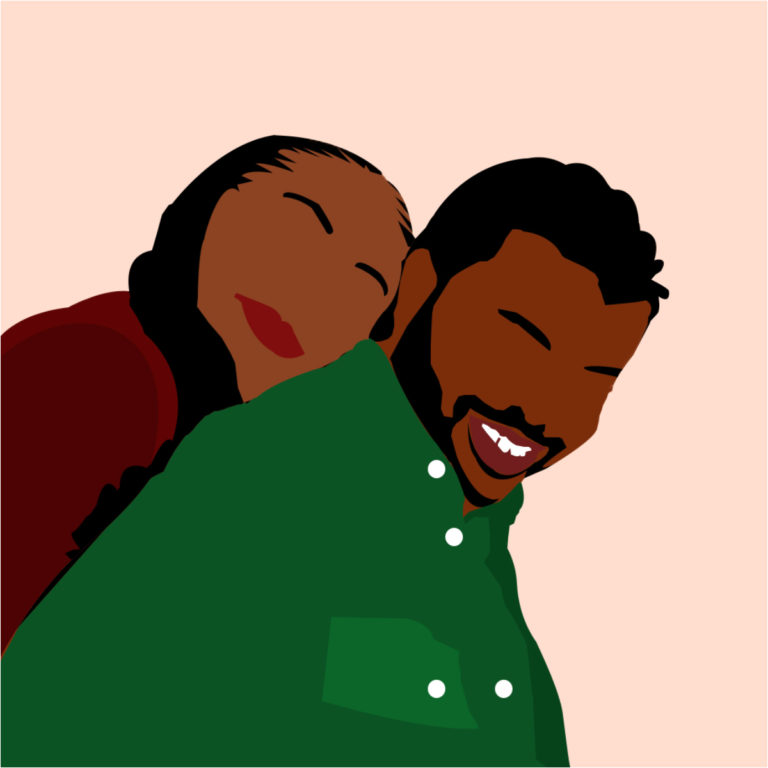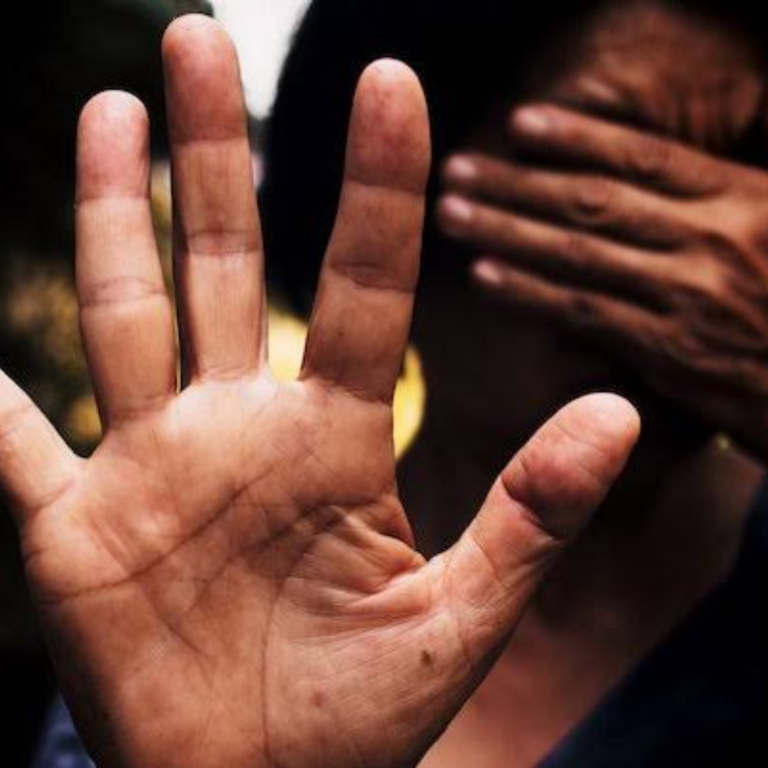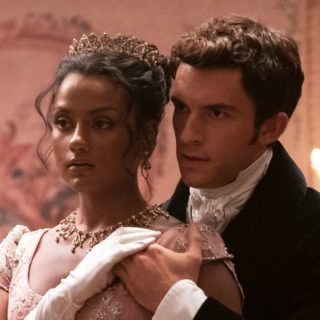By: Ngozi Chukwu
When Nigeria took the lead against Ivory Coast during the AFCON final on Sunday night, my street erupted in a loud cheer, accompanied by the celebratory sounds of fireworks. I was indoors and couldn’t see the multicoloured fireworks die as quickly as they exploded in the night sky. But I have witnessed enough Christmases to imagine it. Just as soon as the excitement died down, my mind drifted to a memory of a dream that died as quickly.
The dream belonged to the Uber driver I met three days earlier. He loved and played football until his father took everything desirable out of him decades ago.
The whole of Africa watched the Nigeria vs Cote d’Ivoire match at the edge of their seats, but I imagined he was out driving a passenger in his Uber Go vehicle — the exact vehicle he drove me in while the Nigeria vs South Africa game was on February 7.
“Did you catch the ’89 game? Nigeria versus USSR in the FIFA U-20 World Cup?” he started with a laugh when I asked him why he wasn’t watching the match. I chuckled at his rhetorical question because I wasn’t born in 1989.
He recalled being a 21-year-old student, juggling studying for university entrance exams with watching the Under-20 World Cup game on the TV with his father. In their one-bedroom flat, his attention danced between the match played miles away in Saudi Arabia and the notes spread across his lap.
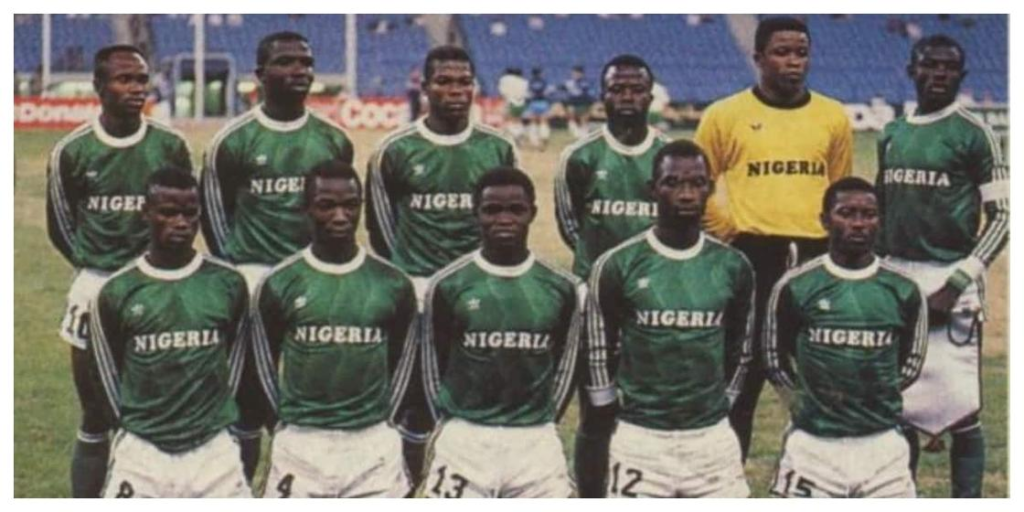
Like many Nigerians that day, his heart sank in the 46th minute when Russia took a 4-0 lead. Feeling sullen and defeated, he retreated to the bedroom to focus on studying. However, fifteen minutes later, his father’s cheers filtered through the thin wall separating both rooms. Nigeria’s midfielder, Oladimeji Lawal, had scored a goal with thirty minutes to go. Initially dismissing it inconsequential, he continued studying but was soon startled by another roar — Nigeria had scored a second goal.
“I closed my books and rushed back to the living room.” Before full-time, Nigeria scored two more goals to level with the USSR.
“I told myself that maybe a miracle could happen.” Coincidentally, that match is known as The Miracle of Damman, named after the Saudi Arabian stadium where the match was played.
“We watched the match on one of those black and white TVs that looked pregnant from behind,” he said, trying to describe the size of this TV. I wasn’t sure why this detail was important until he described what happened next.
What the TV may have looked like
Like the Nigeria vs South Africa match on the night of February 7, the World Cup game vs the USSR decades ago also ended in a draw. So, to decide the winner, both teams had to compete in a penalty shootout.
My Uber driver at the time was a footballer, too. He started in defence and eventually played as a goalkeeper. I wanted to ask him if he played professionally, but I didn’t want to interrupt his flow. “I was very good at football,” he said.
He and his father watched the shootout with their hearts in their mouths. My Uber driver also thought simulating the match actions would help Nigeria’s chances of winning; if he kicked the imaginary ball in his living room and sent the keeper the wrong way, the Nigerian players would send the keeper the wrong way and score their penalty kicks. There was no logic to it, but he believed that’s what he had to do to help the team win.
“But while I was trying to help Nigeria score, I hit my leg hard at the TV, shattering the device and rousing a sharp pain in my foot,” he said.
Nigeria won the penalty shootout and advanced to the semis, but neither he nor his father watched it happen. Throughout that night and the following days, his father tended to his injuries, but not with care. “He massaged my leg wickedly every night.”
The aftercare was so painful that by the time the injury healed up and the pain was gone, so was his affinity for the sport.
Indifference now defines the 56-year-old’s attitude towards the sport. If my Uber is watching television and learns from his children that a match is on, he carries on with his shows like it is nothing. “I never interrupt any show I am watching just for a match. My son loves to watch football, but I send him off to the other room to use the television there.”
His son also plays football and nurses dreams of making a career out of it. My Uber Driver says he supports his interests as much as possible. “He is only 22 years old; still a young man. I won’t let my father’s actions block his dreams.”
The man now fuels his son’s football dreams with his earnings from driving cabs. Before Uber arrived in Lagos in 2014, he chauffeured the affluent in yellow taxis, a stark contrast to today’s more accessible ride-hailing scene.
When there were no ride-hailing apps, taxi drivers waited long hours for customers at the airport, bus stops, and other busy landmarks. “Those rides cost more than today’s Ubers,” he reflected, “but finding customers could be a gamble sometimes.”
Eager to embrace technology’s promise of a steady stream of customers, the then 30-something-year-old yellow-taxi taxi driver saw an opportunity to make more money. However, his tech-hesitant colleagues, particularly the older drivers, warned him against it, calling it a waste of time.
Uber offered cheaper fares to attract more customers and charged no commission from drivers. This model, replicated by subsequent ride-hailing apps like Bolt, Indrive, and Rida, aimed to gain user trust and solve the classic “chicken-and-egg” problem of attracting drivers and riders. No driver wants to use a platform that does not have a lot of riders, and no riders want to use a platform that does not have a lot of drivers. However, you need one to get the other and lower fees for both parties are often a sure way to solve the problem.
The driver’s gamble with Uber proved fruitful. “The fare is smaller per ride, but there is a regular stream of customers,” he said. “I even returned to the yellow taxi park to convince some drivers to join the Uber platform.
Now, after seven years, he has earned enough money to buy a car and more than one TV in the house he also built from his earnings, which allows him to watch shows of his choice on one while his kids watch football matches on the other.
I was surprised to learn he had a car, considering that we were sitting in an Uber Go vehicle— a Suzuki that Moove, a vehicle-financing company, give out to drivers on a hire–purchase agreement. In addition to paying commissions to Uber, drivers have to pay Moove from their earnings in fixed instalments.
“I have someone driving my car on Uber and paying me money and commission from the ride,” he explained.
Personal vehicle leasing is very common in Lagos, and car owners often sign agreements on paper to get as much as ₦25,000 weekly or ₦100,000 monthly from the drivers they rent the cars to.
It seemed lucrative, so I wondered why he was still driving with the Uber Go. The vehicle financing plan has fallen out of favour, with some drivers saying they don’t earn enough to meet the instalment payments.
“I was getting lazy,” he admitted. “With my car, I’d stop whenever I got bored or felt I’d earned enough money for the day.”
According to him, Uber requires him to be online for 10 hours daily, six days a week. They believe it’s the best way for drivers to earn enough to pay off the car and eventually own it. However, many fail to meet the quotas and lose their vehicles. So, his self-imposed discipline surprised me. But maybe he thrives under pressure as the best footballers do.
As we pulled onto my street, I broke the comfortable silence again, asking him how familiar he was with my street. His response was a hearty laugh that stretched on for a full minute. “I know this place like the back of my hand,” he said, gesturing to a long, slender palm that made it hard to believe he was approaching 60.
It made me wonder if his easy amusement was a remnant of youth, clinging on despite his father’s influence on his football dreams. Or if it was a response to the trauma he endured from his father after that night in 1989.
I learned later that Nigeria lost the final against Côte D’Ivoire, finishing second in this AFCON campaign. When I heard the news, I wondered how many heartbreaks my Uber driver had spared himself after all these years of not watching football.

